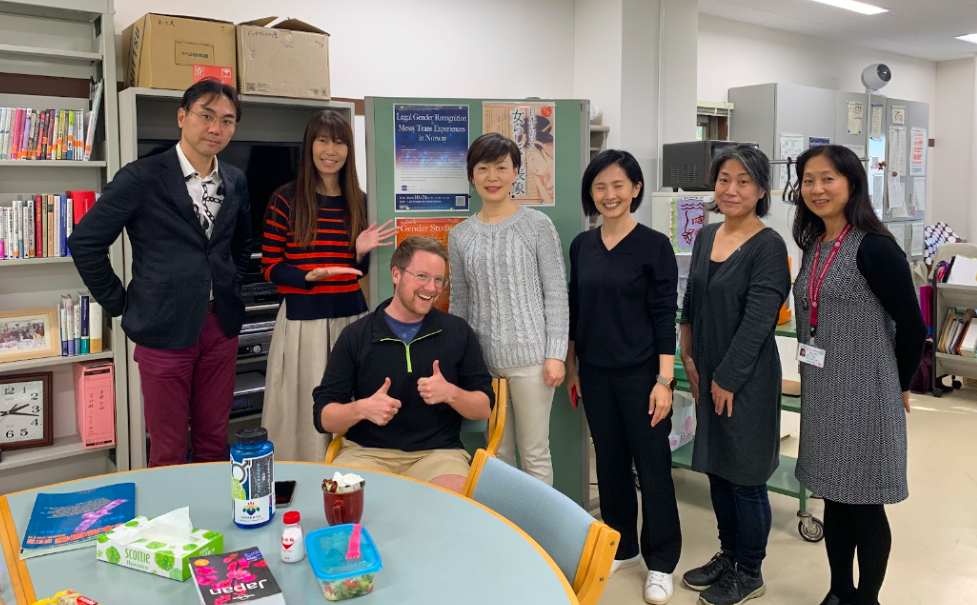Upcoming postdoctoral research
From 1. April 2023, I have been awarded a postdoctoral research stipend by the Japan Society for the Promotion of Science (JSPS) to study transgender issues in Japan for one year. During this term, I have been graciously offered a placement at Ochanomizu University’s Institute for Gender Studies. There I will work closely with Prof. Kei Ishimaru in completing my research project, as he is an expert in the field of trans studies in Japan.
Project background
My project builds on research I conducted in late 2019, described in this blog post. In that research trip, I carried out interviews with trans and gender diverse people living in Japan in order to understand how they experience Japan’s limited institutional support. Since then I have co-authored a chapter on the findings with Prof. Ishimaru, which has been published in KULT’s 2021 book, Comparative Perspectives on Gender Equality in Japan and Norway (access here).
Interestingly, the interviewed participants did not express as much discontent and struggle as one might expect, given the relative lack of infrastructure around gender diversity protection and promotion.
Their stories of coping and empowerment were in many ways comparable to those I had collected of trans people in Norway for my PhD. As Norway’s trans rights are relatively quite advanced, this was an interesting find. Therefore, I decided to apply for further funding to examine how trans people in Japan work individually and communally to foster national and societal belonging.
Summary of my planned project "Trans experiences of belonging in Japan"
In contrast to many countries, Japan has over the past decades upheld traditional understandings of gender norms in response to the globalising trans (transgender and gender diverse) rights movement. As a result, trans people in Japan are facing limited societal and legal recognition of their gender identities and experiences. In this research project, I will investigate how trans people in Japan respond to the lack of formalised recognition. A specific focus will be on how they might find ways to cope or even thrive through individual and collective resilience. To do so, I will apply the analytical framework of belonging - how one experiences and responds to in/exclusion and non/recognition – to personal narratives by trans people as well as to trans community efforts in Japan. Through this framework, I will explore strategies of resilience, such as adaptive modes of sense-making, community development and self-transformation.
In this project, I seek to move away from the victimhood framework of Euro-American gender studies. I will examine how trans people in Japan make sense of their limited socio-legal recognition and claim spaces for empowerment, community-building and social/national belonging. I will also study how experiences and responses are informed by local and global discourses on gender diversity and trans rights. How do trans people adopt and adapt these discourses in strategic ways, as individuals and through community work?
The project will apply a transfeminist decolonising framework. This framework is applied order to trace the limitations of the Euro-American rights framework for understanding the nuances of trans experiences in both non-Western contexts and the Western context.


